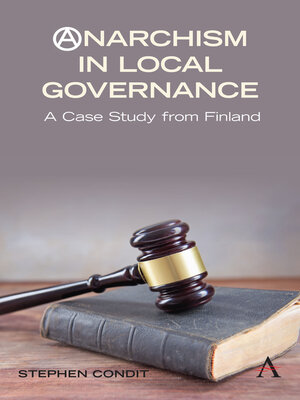
Sign up to save your library
With an OverDrive account, you can save your favorite libraries for at-a-glance information about availability. Find out more about OverDrive accounts.
Find this title in Libby, the library reading app by OverDrive.



Search for a digital library with this title
Title found at these libraries:
| Library Name | Distance |
|---|---|
| Loading... |
Through accounts of his experience as a local politician and elected once holder, Stephen Condit examines, in 'Anarchism in Local Governance', how his anarchist convictions may have contributed to the administration of his community in a way that empowers citizens towards self-governance and prefiguration of communal anarchist ideals. The hypothesis is that municipal governance and anarchist thought and praxis can both benefit by this kind of encounter. Condit also investigates the emergence of anarchism through citizen participation in civil society as a reality to which the municipality is accountable.
|Stephen Condit begins 'Anarchism in Local Governance' arguing that anarchism and anarchists must engage with the ruling order in a more inclusive manner than radical opposition, at least in the environment of a stable and cautious welfare society like Finland. This encounter may enlarge the purposes and values of municipal governance towards some of the fundamental values of anarchism, primarily individual and communal self-governance, and as well develop anarchist thought and praxis, not to renounce radical and non-conventional action, but to enlarge its scope and opportunities by strengthening the legitimacy of anarchist values and praxis, and their practical relevance to the social order.
The discussion entails three intertwined discourses: anarchist thought in philosophical and theoretical terms with an emphasis on the possibilities of its praxis; a descriptive examination of municipal governance through its organisations, strategies and policies; and a rather anecdotal account of Condit's 30-year career in attempting to combine these dimensions of anarchism, municipal governance and citizen participation in civil society. The counterfactual ideal of Bookchin's libertarian municipalism is a significant measure of evaluation.
Condit's self-assessment is equivocal. He failed to instil much practical anarchism into the municipality and possibly diluted his own demonstration of anarchism beyond what most anarchists would accept. Nevertheless he considers his project justified because it has clarified potentialities for the municipality, citizen associations and anarchism, and because it may express in more coherent conceptual and ethical form significant emerging trends in Western society.







